Flip, flip, flip, flip, flip, flip, flip,
Banana knife!
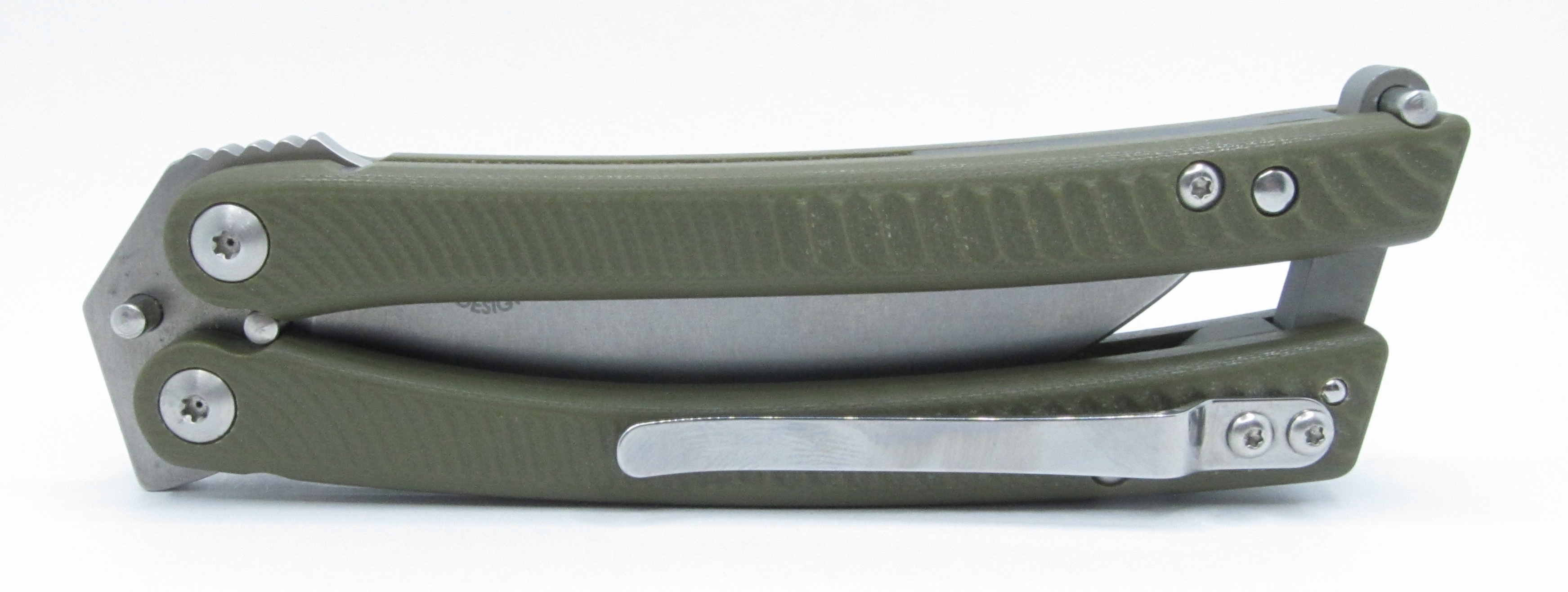
(Doot doot doo doo doo doot)
Click clack click clack click clack click,
Banana knife!
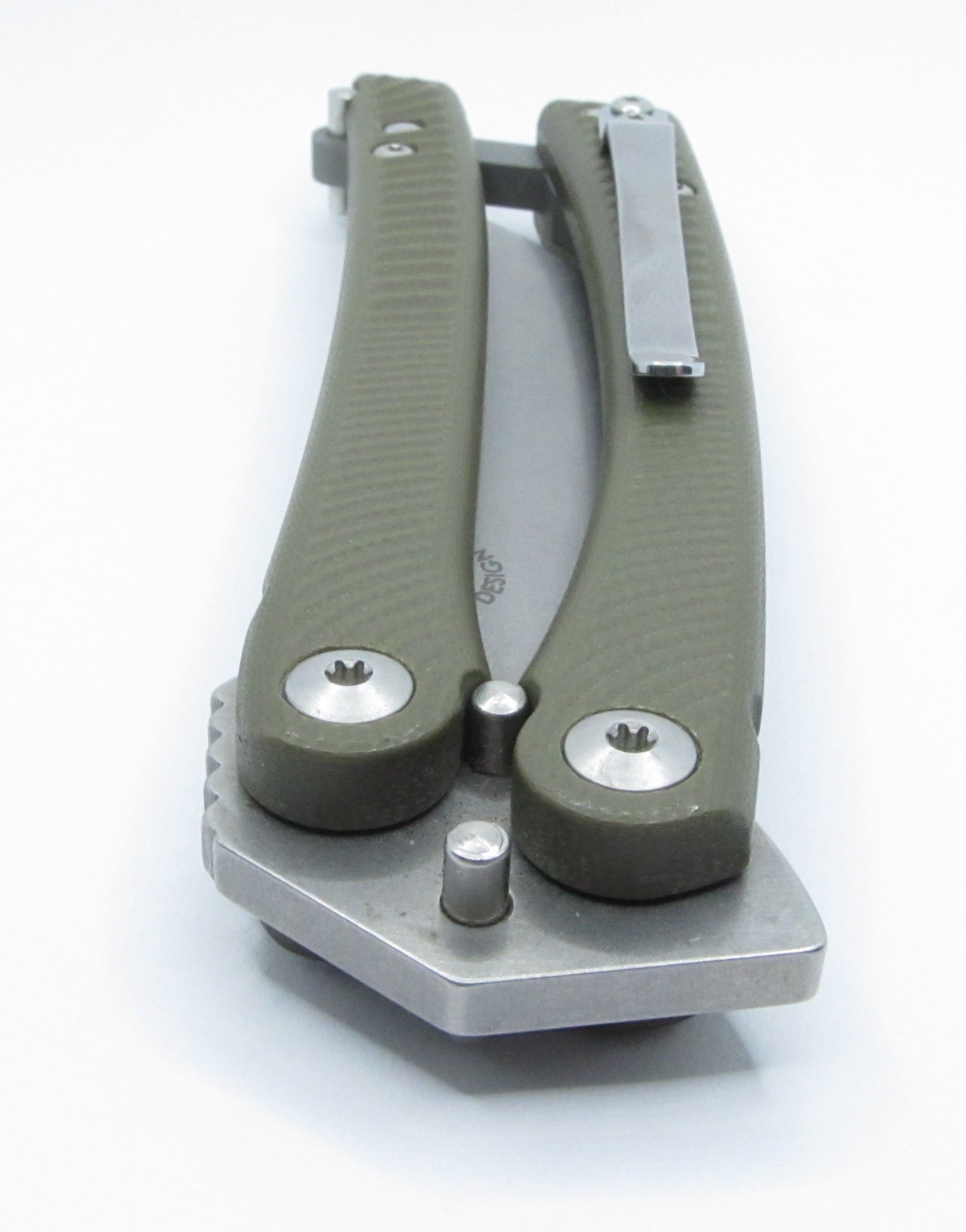
It’s made by Benchmade
But in a weird shape
Plasticky, noodly, no collectability…
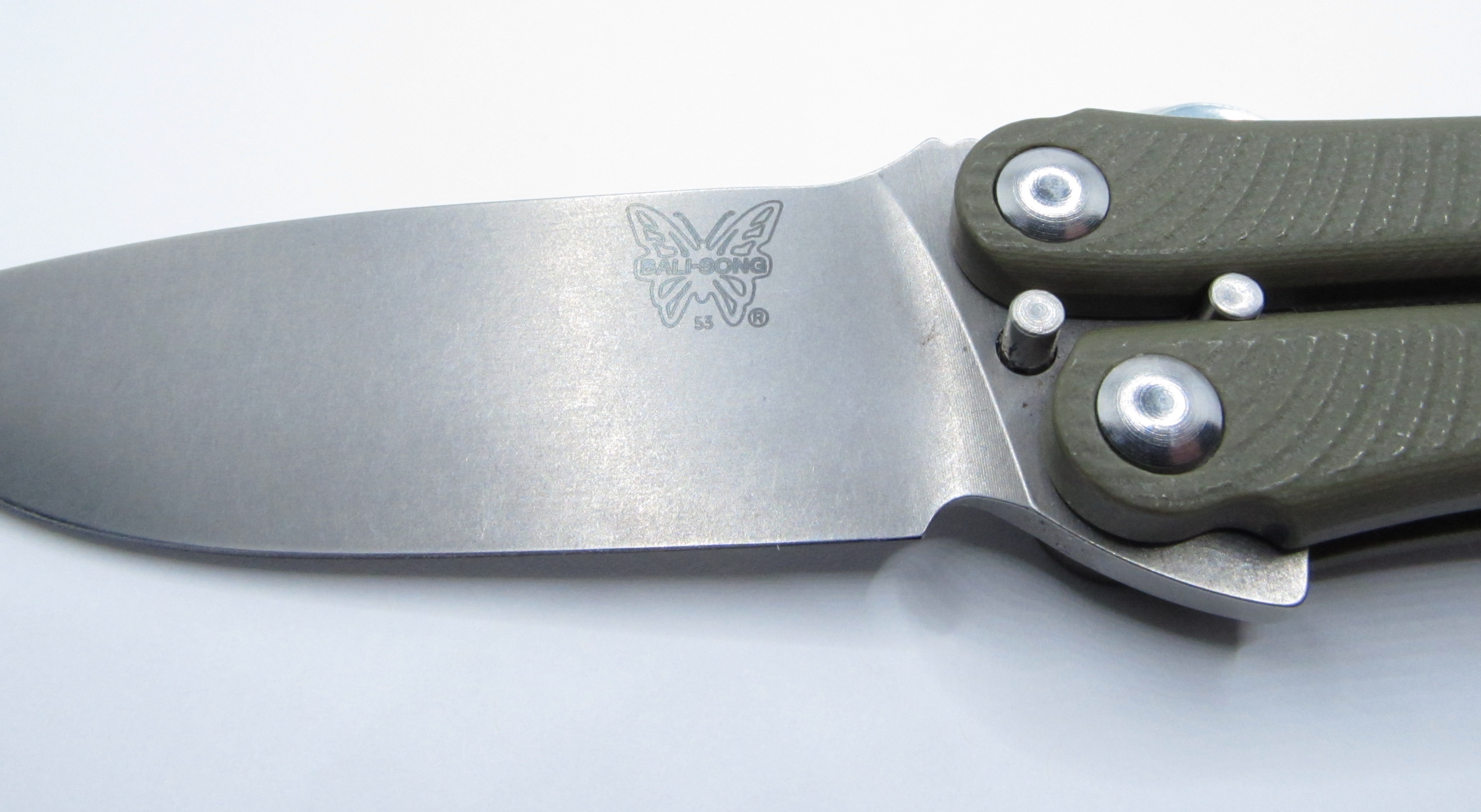
Despite having the highly desirable Benchmade “Bali-song” marking on it, the Model 53 somehow fails to command the spectacularly insane resale value of Benchmade’s other models. Maybe that’s because it looks so weird, with its bent shape and handle gap being bigger when it’s closed than when it’s open…
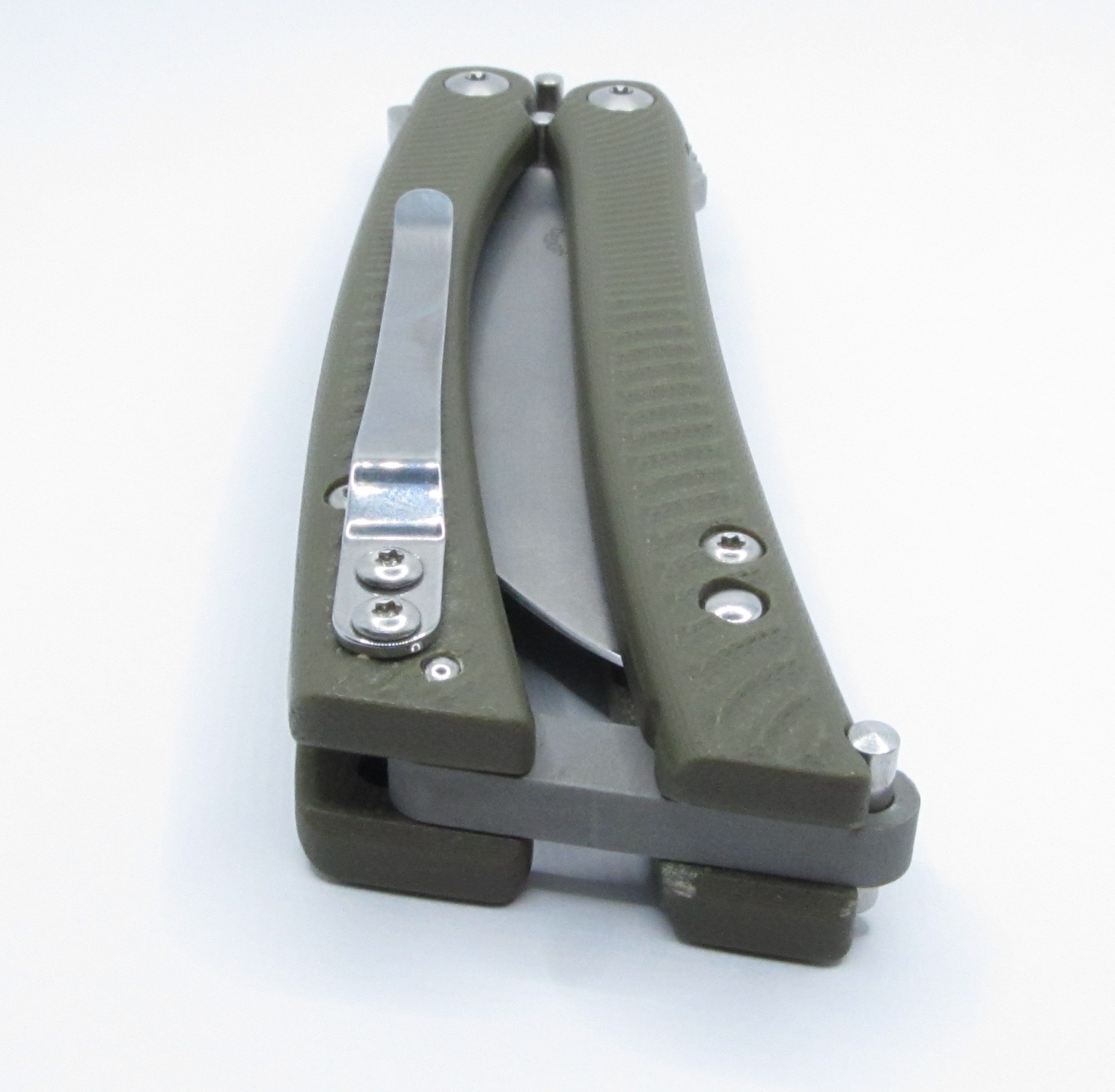
…Or maybe just because it’s actually kind of ugly.
Even so, I rather like the Model 53 as more of a utilitarian object and less of an artistic expression, or straight-to-the-velvet-bag investment vehicle. Maybe this could be, ye gods forbid, a Benchmade balisong that’s actually meant to work for a living?
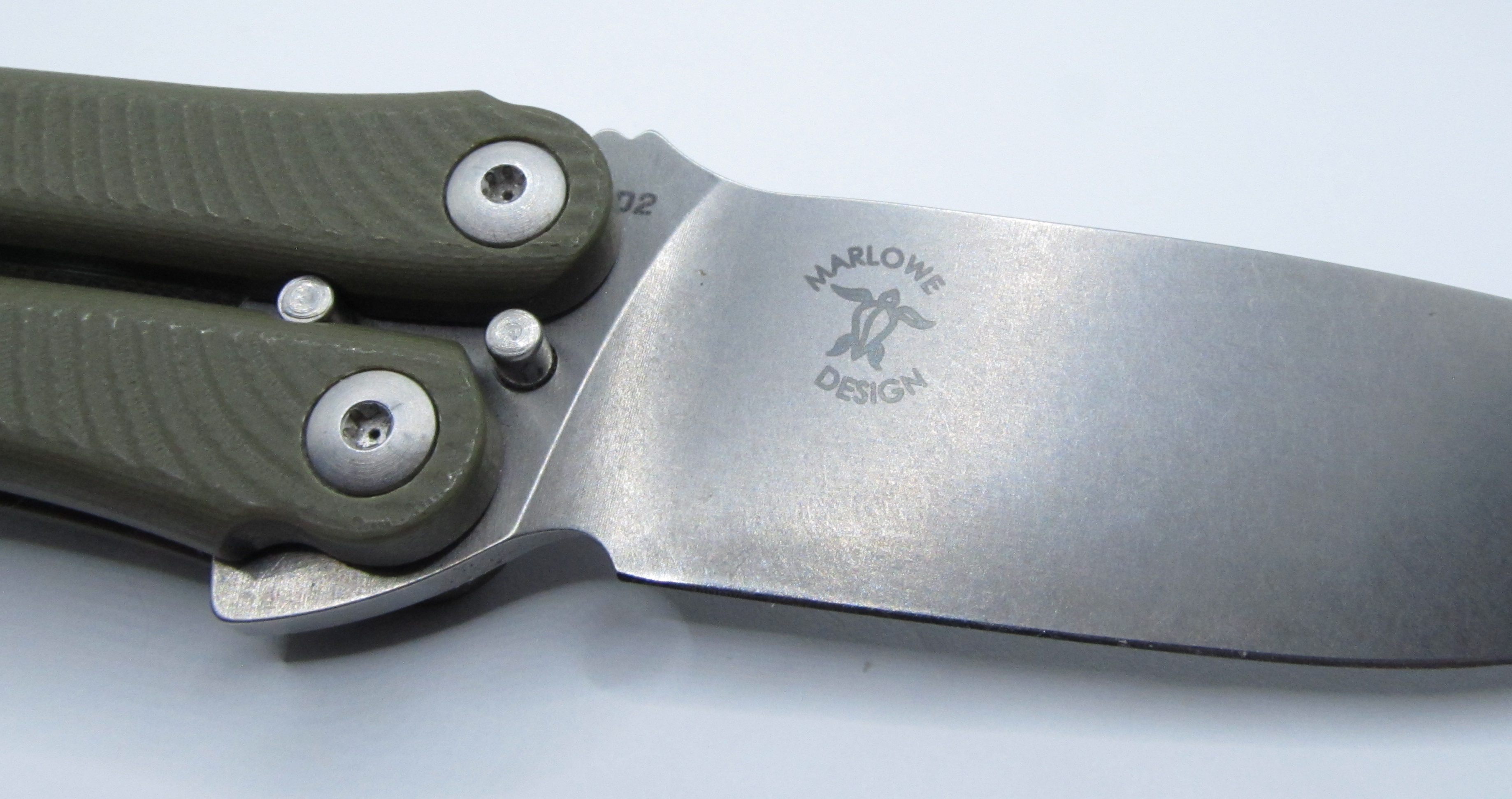
I’ve seen the Model 53 called the “Marlowe” a lot online, probably because of this marking. But Marlowe isn’t what it is, it’s who designed it: Charles Marlowe. I bought it back when because it’s got a couple of properties that I really like in a knife – a size that’s suited to being an EDC and not too large (4-1/2" closed, 7-3/8" open), a D2 blade with a full flat grind, and the rare inclusion of a pocket clip on a balisong knife. (A reversible one, no less!) And it comes in army green.
Actually, it only comes in army green. And that brings us to discussing one of the… unusual… aspects of the Model 53. Those army green handles are made of G10. Not “with G10 scales,” not “embellished with G10 inserts.”
Made of. G10.
All the way through.
There are no metal handle liners in this knife at all. Just two wedge shaped spacers made out of titanium. That means the whole thing is really light: Only 95.7 grams (3.38 ounces). As you would then expect, most of the weight is actually in the blade, which is 3-1/8" long with a roughly 3" long usable edge. It is stonewashed, and has a very usable drop point shape with a small offset choil at the base.

Just about everything about this knife is offset, come to think of it. Like the heel of its blade, showing a section of jimping on one side and this weird hammerhead wedge on the other.

The kicker pins shown here and even pin pressed through the latch are longer on one side than the other, and at this point I’m not entirely sure if that isn’t intentional.

The Model 53 has an otherwise “traditional” dual kicker pin design, even though you think it wouldn’t to avoid bashing the pins into the soft G10 handle material. The latch – also titanium – isn’t spring loaded. That’s practically Benchmade’s calling card, so what’s up with that?
Due to the choice of materials the handles are also super flexy. In the closed position, the latch rests home in its little groove very firmly. It’s basically impossible to kick it loose with your pinky. But it can actually be made to drop free by giving the handles a really big squeeze, which can bring them closer together by at least a quarter inch. That actually feels pretty alarming, but my example has been withstanding that for years with no issue so I guess it’s just how it’s supposed to work.
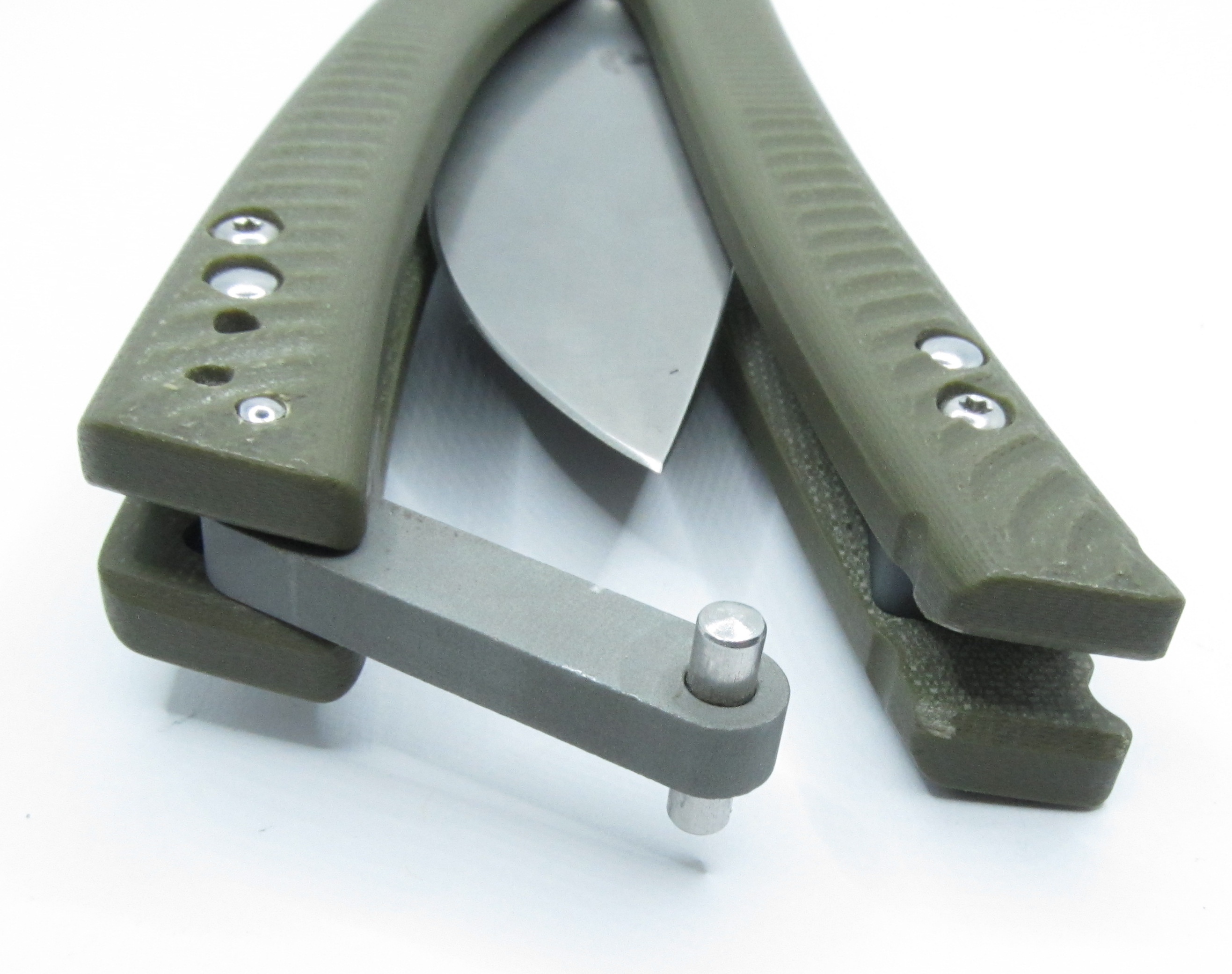
The latch has a limited range of travel and is stopped by the end of the spacer wedge on its side. It can’t touch the blade, but it can touch the inner surface of the opposite handle and as you can see, my example has some visible marring on the corners there from being repeatedly bashed with the pin in the latch.
The overall package just has an uncanny vibe. Maybe it’s because all the contact surfaces are metal-on-G10, and some deeply buried portion of all of our brains recoils as this since it’s just so clearly wrong. All the pieces are precisely machined and fit together well, but they way it all works and feels as designed is just… strange.

The Model 53 flips very nicely but the super lightweight handles don’t carry a lot of inertia. That feeling definitely takes some getting used to, and owing to its light weight and short handles the '53 probably isn’t the best choice for a show-off trick spinning knife. It’s definitely meant to be more of an EDC tool which just happens to also be a balisong.
Here’s what’s inside:

I’ve been deliberately avoiding mentioning this so I could keep it as a surprise. The Model 53 has ball bearing pivots.
Ball bearing pivots. On a knife with handles made entirely of soft composite. How?
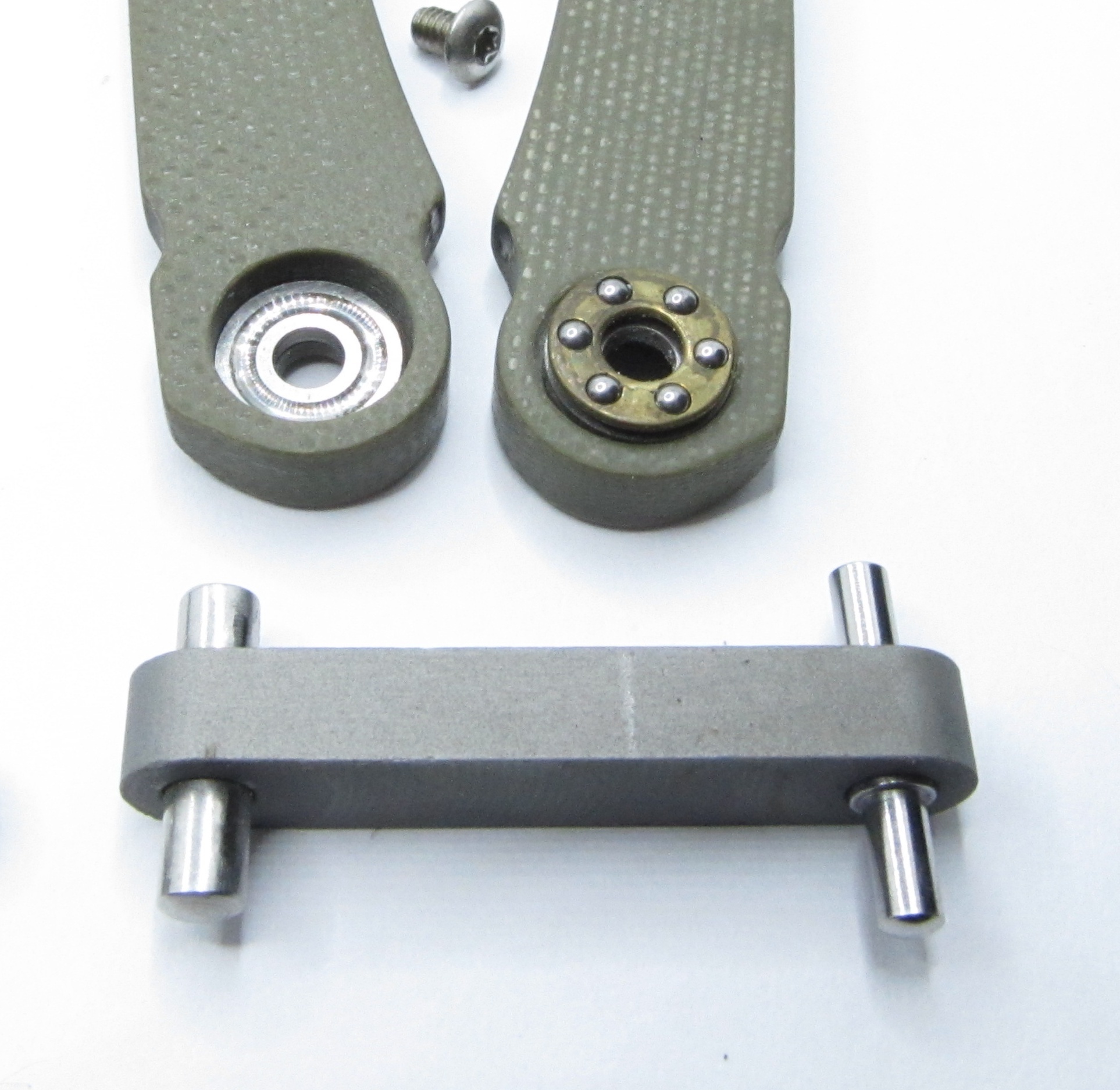
Well, there are no fewer than eight of these little machined aluminum spacers in there with races milled into them for the balls in the bearings. There are four bearings, and each one of them gets two of these: One facing the handle, one facing the blade. The bearings are why this knife is so easy to flip even though the handles don’t weigh anything.
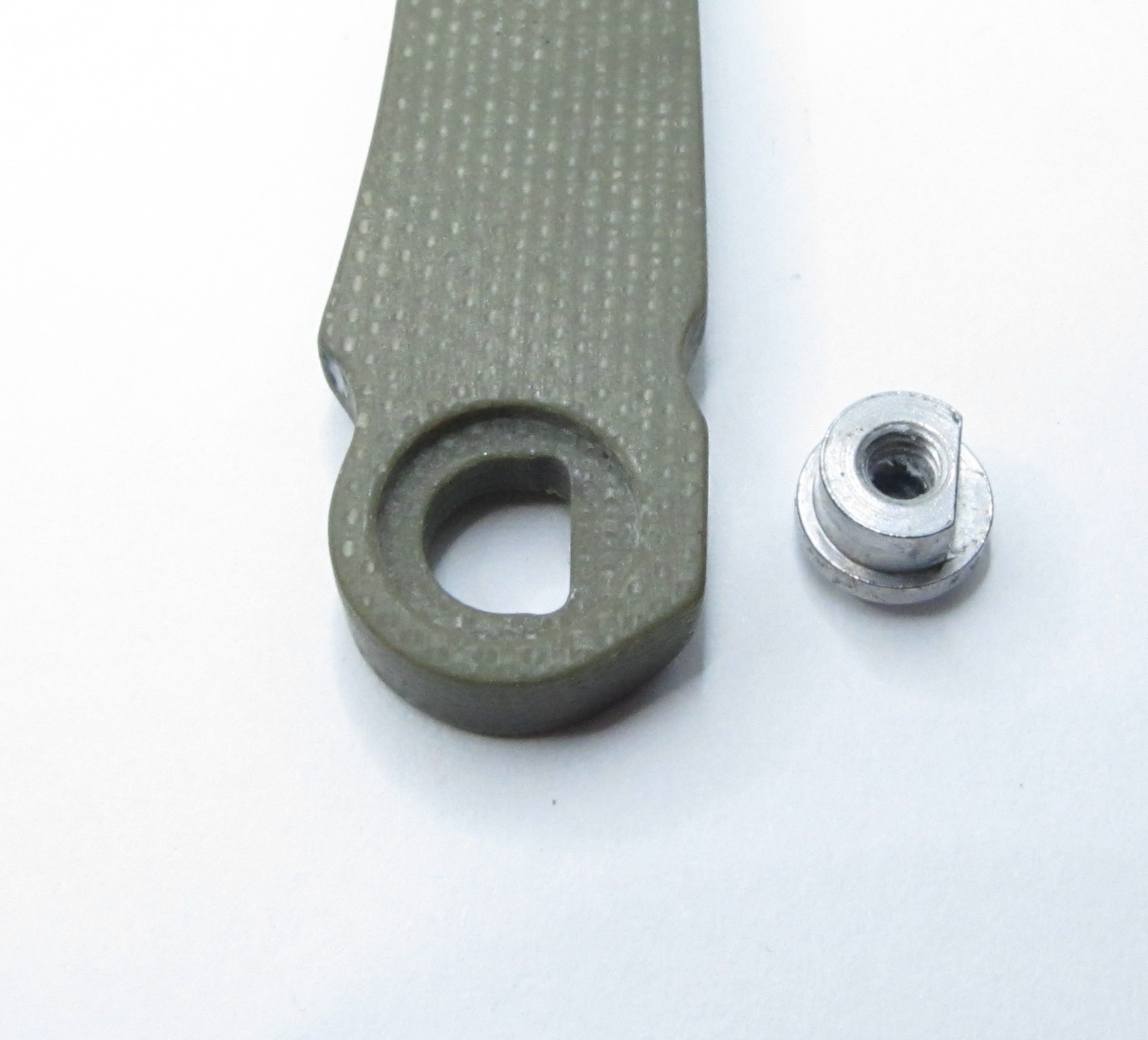
Even the pivot screws are asymmetrical, with this D shaped design that fits a matching cutout in each handle. Thus they can be smooth headed “impossible” screws, but which don’t require any tricks to undo.
The rest of the Model 53’s construction consists solely of a quartet of Chicago screws that go through the handle spacers, holding the non-pivot ends of the handles together. They’re press-fit into the handles, and while you can remove them it takes quite a shove and there’s no reason to. The handles can come part while leaving them in place. The latch just swings on a pin that sticks through a pair of holes on the very end. And the screws holding down the pocket clip are just chunked straight into the G10 material, with no threaded inserts or anything. I always found that a little concerning, but mine hasn’t ripped out yet.
Here’s the wiggle test.

You can get the tips of the Model 53’s handles pretty far out of whack relative to each other, even when the pivot screws are buttoned down. Usually that’s not the case for bearing pivot knives, but in the case of the '53 I can’t exactly prove that just not down to the sheer bendiness of the handles. It probably is.
The Inevitable Conclusion
If any of the rest of the usual suspects in the balisong world aren’t hipster enough for you, maybe consider the Model 53. Just think of how much fun you could have explaining to everyone how it’s an obscure gem that was underrated in its time. And even when it was new it only retailed for $170. If you can snag a used one it shouldn’t be much more than that. I think at this point it’s probably the cheapest way to get a balisong with that Benchmade butterfly logo on it into your pocket.
If said pocket is in a pair of army surplus fatigues, the '53 might be the perfect way to accessorize. Canvas messenger bag, flannel button down, and beard wax optional.


I have never been so glad that the UK bans butterfly knives.